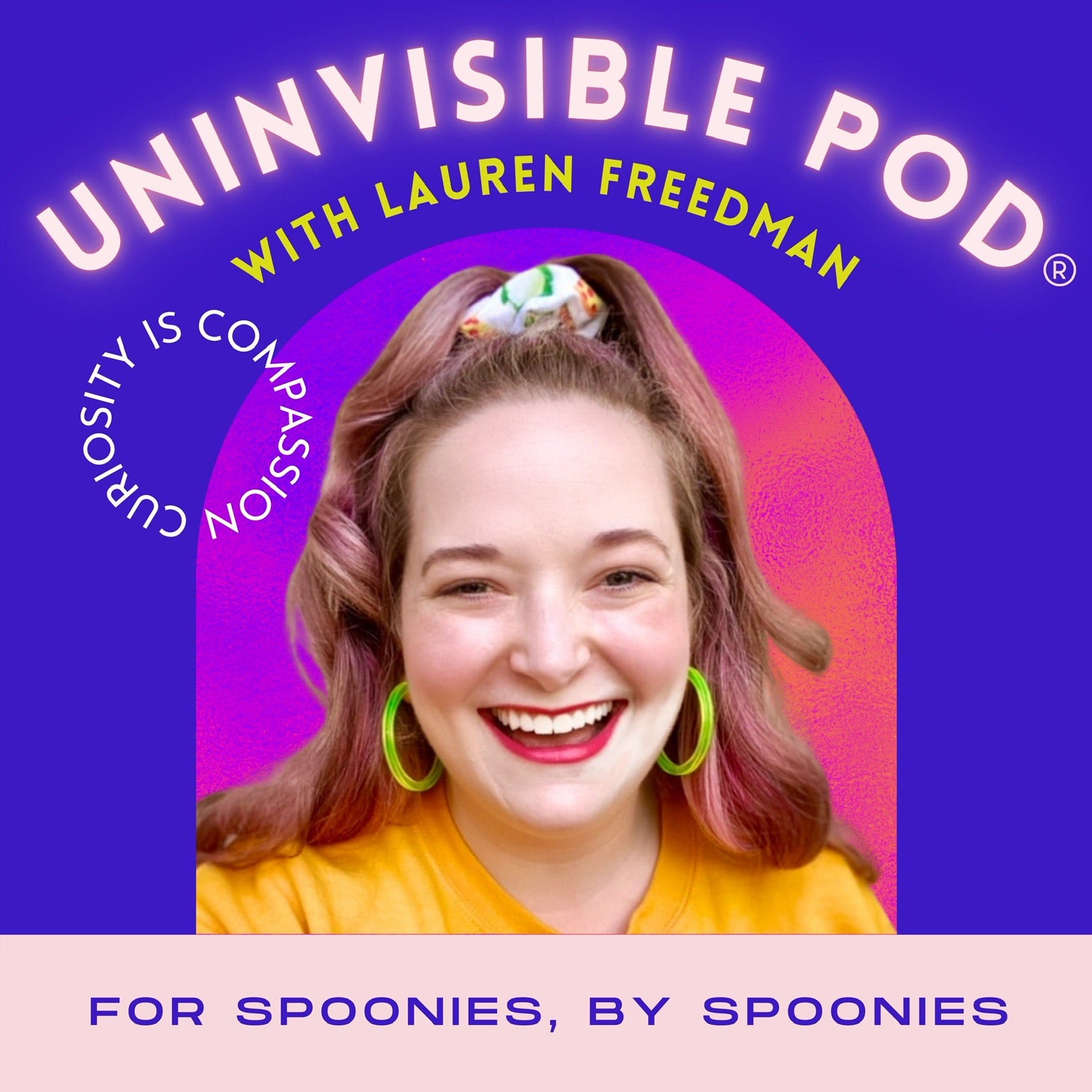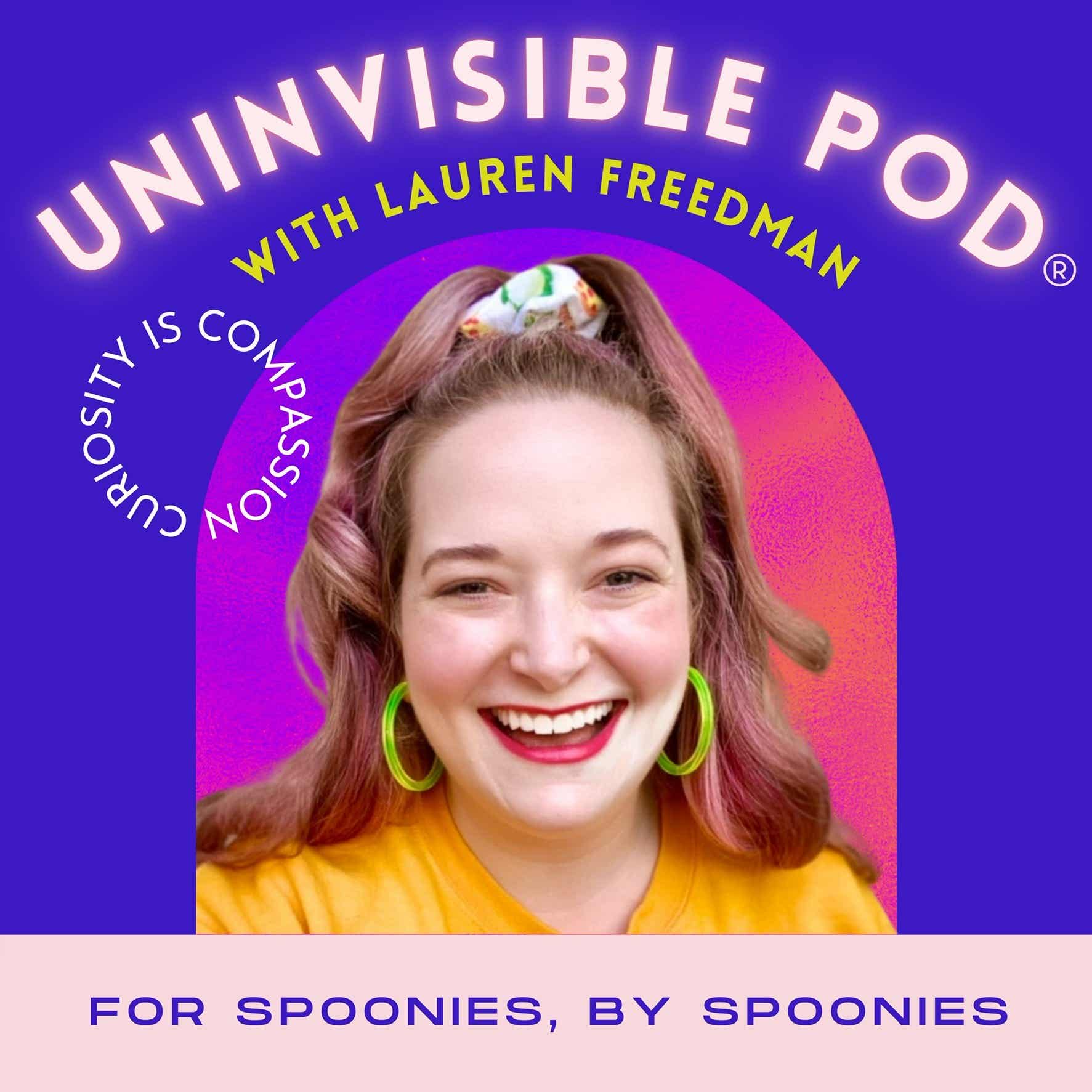
034: Vincent Sabella on Living with Sc hizoaffective Disorder , OCD, Depression, & Anxiety – and Surviving Cancer

Uninvisible Pod with Lauren Freedman
Shownotes Transcript
Writer and filmmaker Vincent Sabella lives with OCD, depression, anxiety, and schizoaffective disorder. In 2013, he was diagnosed with non-Hodgkin’s lymphoma; he has been in remission for six years. Vinny’s film Elizabeth Blue was written after a harrowing year during which many of his medications, with which he is diligent, failed. His husband, Joseph, has been his consummate advocate, and has never been fazed by any of his diagnoses. He sits down with Lauren to discuss his life, his work, and the positive mental attitude he brings to all he does. TW: mental health and suicide.
**Listen in as Vinny tells us… **
that he has just celebrated his 6th year of remission from cancer
that he was undiagnosed with childhood schizophrenia until he was about 16 – when he first attempted suicide. He was initially diagnosed with depression.
that he had a second suicide attempt at 22
that he developed OCD in his late 20s – and his particular form of OCD is related to his health
the nature of his schizoaffective episodes: they involve visual, auditory, and tactile experiences. At first he thought the voices he heard were his subconscious or his imagination; as a kid, he would tell his mother he saw a man dressed in black coming out of his closet
that mental health wasn’t openly discussed in the ‘80s, when Vinny was a kid
that he recognizes undiagnosed mental health issues in his family
that when he was a kid dealing with mental health issues, no resources were readily available to him – he couldn’t Google his symptoms, and he wouldn’t have known where to begin searching at the library
what it’s like to be institutionalized in a psychiatric facility – and state vs. private
that he taught himself to push through his hallucinations, so his early schizoaffective episodes didn’t disrupt his lifestyle
that his film, Elizabeth Blue, reflects much of his experience with mental health disorders – and his lead actress was a dark horse for an Oscar nomination
that he has a great psychiatrist and is now diligent with his medications, which keeps his condition under control
that in 2010, his medications failed because his body built up a tolerance – and Elizabeth Blue is about this difficult year in his life
he recognizes the importance of support and information for these mental health conditions – and that many people don’t have access to them
that he recognizes most of his hallucinations now; but occasionally new ones occur
the importance of language: that certain terminology can minimize and negatively reflect individual experiences of mental health disorders
that schizophrenia is often confused with multiple personality disorder
the importance of celebrities and media more openly discussing mental health
the importance of finding a good psychiatrist when you live with mental health issues
that he can tell when he’s “off” – because it feels like he’s hungover
how he was diagnosed with non-Hodgkin’s lymphoma: he pulled something in his abdomen that felt like a hernia, which later filled with fluid
that a gastroenterologist sent him for a wet scan of his abdomen – which showed either a bad intestinal infection or cancer – and a week from the initial injury, he was diagnosed with the latter
how his husband, Joseph, advocates for him in medical settings, and protects him from his own anxieties – and why he’s grateful for Joseph’s care
that he endured 5 months of chemo, and was mentally stable during that period of time
why he’s opting not to participate in Smart Brain (Transcranial Magnetic Stimulation / TMS) treatment – because he sees his mental health concerns as blessings
that staying mentally positive is work – but it’s worth it
that working out is a form of therapy for him
that he’s never had a medical professional NOT believe him
that he donated a portion of proceeds from Elizabeth Blue to NAMI – The National Alliance on Mental Illness
that he continues to be involved with NAMI
that he wanted to get involved with Covenant House (he has a soft spot for homeless youth), but was unable to because of his mental health status
the importance of privacy – and sharing only when and if you’re ready
that the LA LGBT Center offers free and low-cost medical screenings
the films he turns to in order to calm down This is a public episode. If you would like to discuss this with other subscribers or get access to bonus episodes, visit uninvisiblepod.substack.com)
